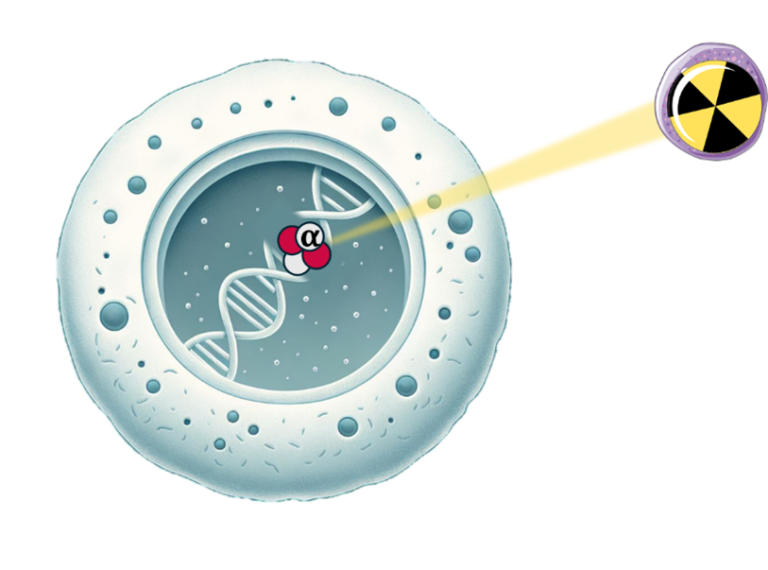Alpha radiation therapy
Oncoinvent focuses on a technology platform that uses radionuclides to deliver powerful alpha radiation directly to cancer cells, killing them through causing irreparable DNA damage.
Alpha radiation, or alpha particles, are known for their high energy and short path-length in comparison to other radiation modalities such as traditional external beam radiation therapy and beta radiation. When a cancer cell is hit by alpha particles, its DNA will be damaged in a highly complex manner. This type of DNA damage with many of the so-called “double-stranded DNA breakages” is very difficult to repair for the cancer cell. As a result, there is a high probability that the cancer cell dies when hit by alpha particles, even for cancers that are resistant to chemotherapy and external beam therapy. At the same time, the less than 0.1 mm range of alpha particles minimizes radiation exposure to surrounding healthy tissues and cells.

Alpha radiation can be harnessed from certain radioactive elements, i.e., radionuclides. These “alpha emitters” can be used as radioactive payloads in cancer medicines (radiopharmaceuticals). The medicines are administered to the patient for internal irradiation of the cancer. One way to ensure cancer-directed cell killing is by coupling these radionuclides to delivery vehicles or targeting molecules.
Radspherin®
Oncoinvents lead product candidate is designed to treat cancer in the peritoneal cavity
Description of the product
- Inorganic microparticles as carriers of alpha-emitters
- High-power radiation with a short range
- Short half-life of the radionuclide
- Microparticles which degrade slowly in the body
- Regional retention of effective radiation dose


